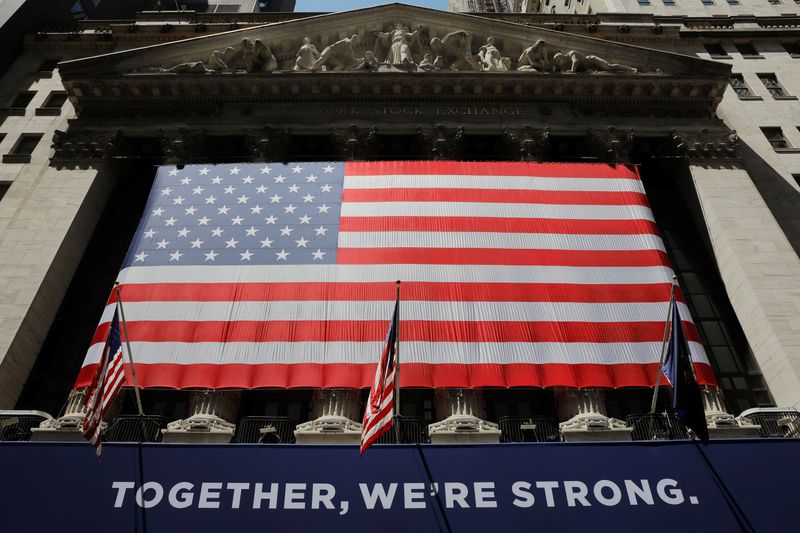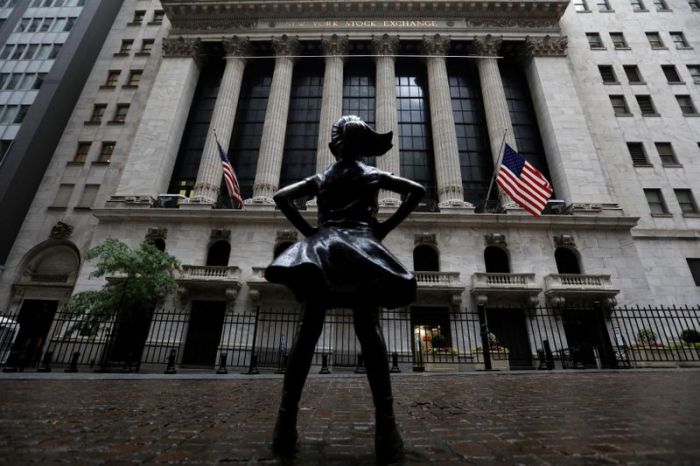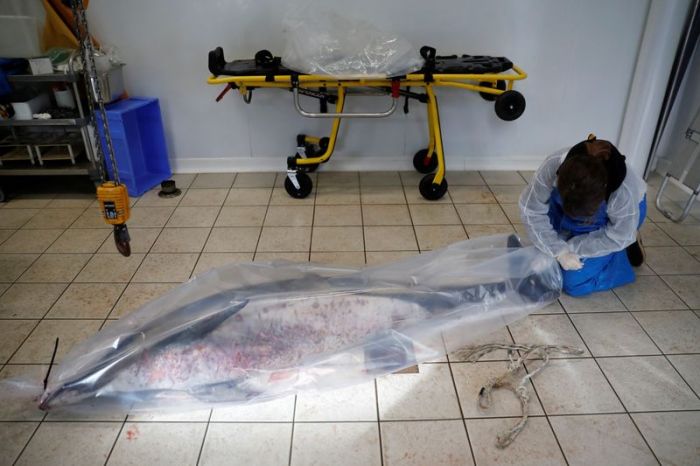NEW YORK (Reuters) – Wall Street’s major indexes tumbled more than 2% on Friday as several U.S. states imposed business restrictions in response to a surge in coronavirus cases.
Some U.S. states that were spared the brunt of the initial coronavirus outbreak or moved early to lift restrictions are seeing a resurgence in new infections. On Friday, Texas and Florida ordered bars to close down again.
“You’re seeing a pretty dramatic increase in cases,” said Kevin Grogan, managing director of investment strategy at Buckingham Strategic Wealth in St. Louis. “If people start feeling again like it’s not safe to eat out or go shopping, that could have a really negative impact on the stock market.”
A Wall Street Journal report that the Phase 1 U.S.-China trade deal could be at risk placed additional pressure on U.S. stocks. According to that report, Chinese officials warned that “meddling” in Hong Kong and Taiwan could lead Beijing to back away from its commitment to purchase U.S. farm goods.
“It added another log into the risk aversion fire,” said Edward Moya, senior market analyst at OANDA in New York, of the report on China.
Among sectors, financial, communication services and energy shares outpaced the broader S&P 500 in declines. S&P 500 bank shares plummeted 6.1% after the Federal Reserve limited dividend payments and barred share repurchases until at least the fourth quarter following its annual stress test.
Renewed concerns over the novel coronavirus pandemic have threatened to derail a strong rally for Wall Street that has erased much of the S&P 500’s steep losses from March. The benchmark index ended below its 200-day moving average, an indicator of long-term momentum.
The uptick in coronavirus cases likely triggered a test of that technical level, said Jim Paulsen, chief investment strategist at The Leuthold Group in Minneapolis.
The Dow Jones Industrial Average fell 730.05 points, or 2.84%, to 25,015.55, the S&P 500 lost 74.71 points, or 2.42%, to 3,009.05 and the Nasdaq Composite dropped 259.78 points, or 2.59%, to 9,757.22.
For the week, the S&P 500 fell 2.87%, the Dow lost 3.31%, and the Nasdaq shed 1.87%.
Facebook Inc shares shed 8.3%, weighing the most on the S&P 500, after Unilever PLC and Verizon Communications Inc joined an advertising boycott that called out the social media giant for not doing enough to stop hate speech on its platforms.
Nike Inc shares dropped 7.6% as the footwear maker, hurt by store closures due to the pandemic, posted a surprise quarterly loss.
Gap Inc shares surged 18.8% after the retail chain entered a 10-year deal with rapper and fashion designer Kanye West to create a line of clothing under his Yeezy brand.
Friday also marked the reconstitution of the FTSE Russell indexes, including the large-cap Russell 1000 and small-cap Russell 2000. Daily trading volume is often among its highest levels of the year during the reconstitution, though volume this year has spiked on several occasions amid steep market sell-offs.
Volume on U.S. exchanges was 16.43 billion shares, compared to the 13.44 billion average for the full session over the last 20 trading days.
Declining issues outnumbered advancing ones on the NYSE by a 3.99-to-1 ratio; on Nasdaq, a 3.57-to-1 ratio favored decliners.
The S&P 500 posted five new 52-week highs and no new lows; the Nasdaq Composite recorded 59 new highs and 28 new lows.
(This story refiles to fix grammar in paragraph seven)
(Reporting by April Joyner; Additional reporting by Devik Jain and Medha Singh in Bengaluru; Editing by Cynthia Osterman)






















